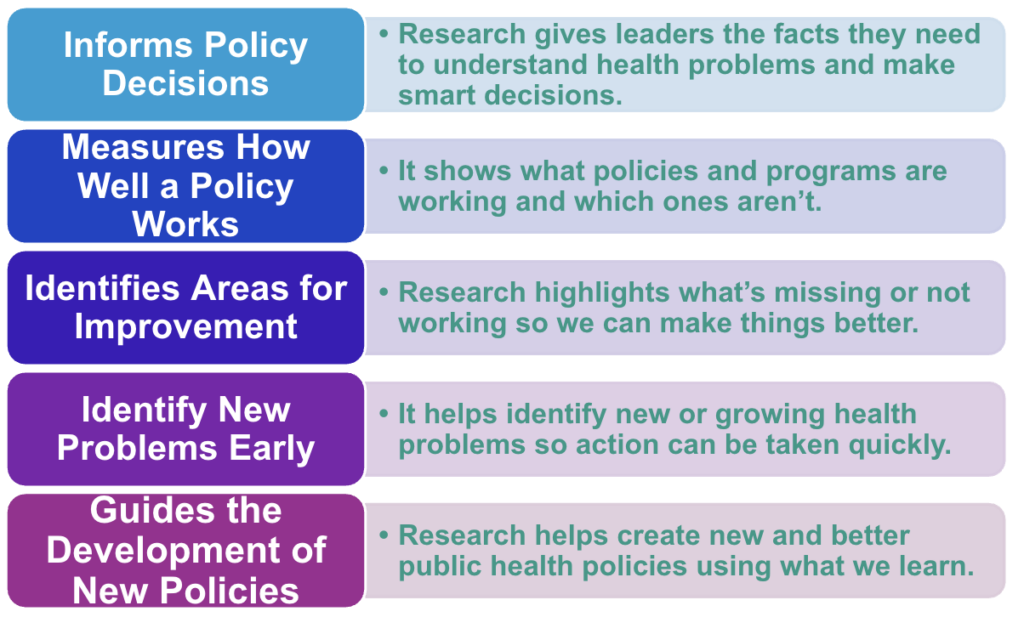Research Rooted in Our Reality

Public health research helps prevent disease, promote fairness in health, and improve life for individuals and communities.
It is especially important for Black women and girls because it helps us understand the health problems they face, such as higher rates of chronic illnesses, barriers to care, and the impact of racism on health.
By centering Black women and girls in research, we can collect more accurate data, implement more effective health programs, and develop policies that support their health, safety, and well-being. It’s a step towards closing health gaps in Black women and girls.
Historically, research has overlooked or excluded the experiences of Black women and girls, leading to policies and systems that may not meet their needs. Prioritizing public health research ensures that the voices, health outcomes, and lived experiences of Black women and girls are no longer an afterthought, but central to how health solutions are created and delivered.
- Identify the problem: We start by asking a question or identifying a health issue that needs to be better understood.
- Review previous research: We look at past studies to see what information already exists and where the gaps are.
- Design the research study: We plan how to collect new data, including who we’ll talk to, what we’ll ask, and how we’ll do it in an ethical, respectful way.
- Collect data: We gather information through surveys, interviews, or community input.
- Analyze data: We study the data to find patterns, connections, and key insights.
- Share the findings: We report what we’ve learned in ways that can be used by communities, policymakers, and health professionals.
- Take Action: The goal is to use what we’ve learned to improve health programs, policies, and outcomes.
How Public Health Research Relates to Public Policy
Turning Data Into Justice: Our Current Work
BC-NiCE Study
The Breast and Cervical Navigation in Communities for Equity (BC-NiCE) study is a collaboration with the University of Alabama at Birmingham. Together, we’re tackling the deep-rooted barriers Black women face in accessing breast and cervical cancer screenings. From transportation to trust, we’re studying the real-life obstacles—and providing the navigation, support, and advocacy needed to get through them.
This isn’t research for research’s sake. It’s about reducing preventable cancer deaths and changing how systems respond to Black women’s health.
Black Women’s Menopause & Perimenopause Survey
We also launched the largest menopause and perimenopause survey ever conducted for Black women. Because while everyone’s talking about hot flashes now, our voices have been missing from the conversation.
This historic survey captures the truths mainstream medicine has ignored—what we experience, what we need, and what support actually looks like. The findings will guide policy, reshape clinical guidelines, and ensure that future care isn’t just reactive—it’s responsive.
Why It All Matters
Research rooted in our reality isn’t just about data points. It’s about agency. It’s about finally being able to say: This is what we’re experiencing, and here’s what we’re going to do about it.
At BWHI, we’re not studying problems—we’re building solutions. We’re shifting narratives. And we’re ensuring that when it comes to health equity for Black women and girls, the story being told is finally the truth.
This is what it means to center us—not someday, but right now.


